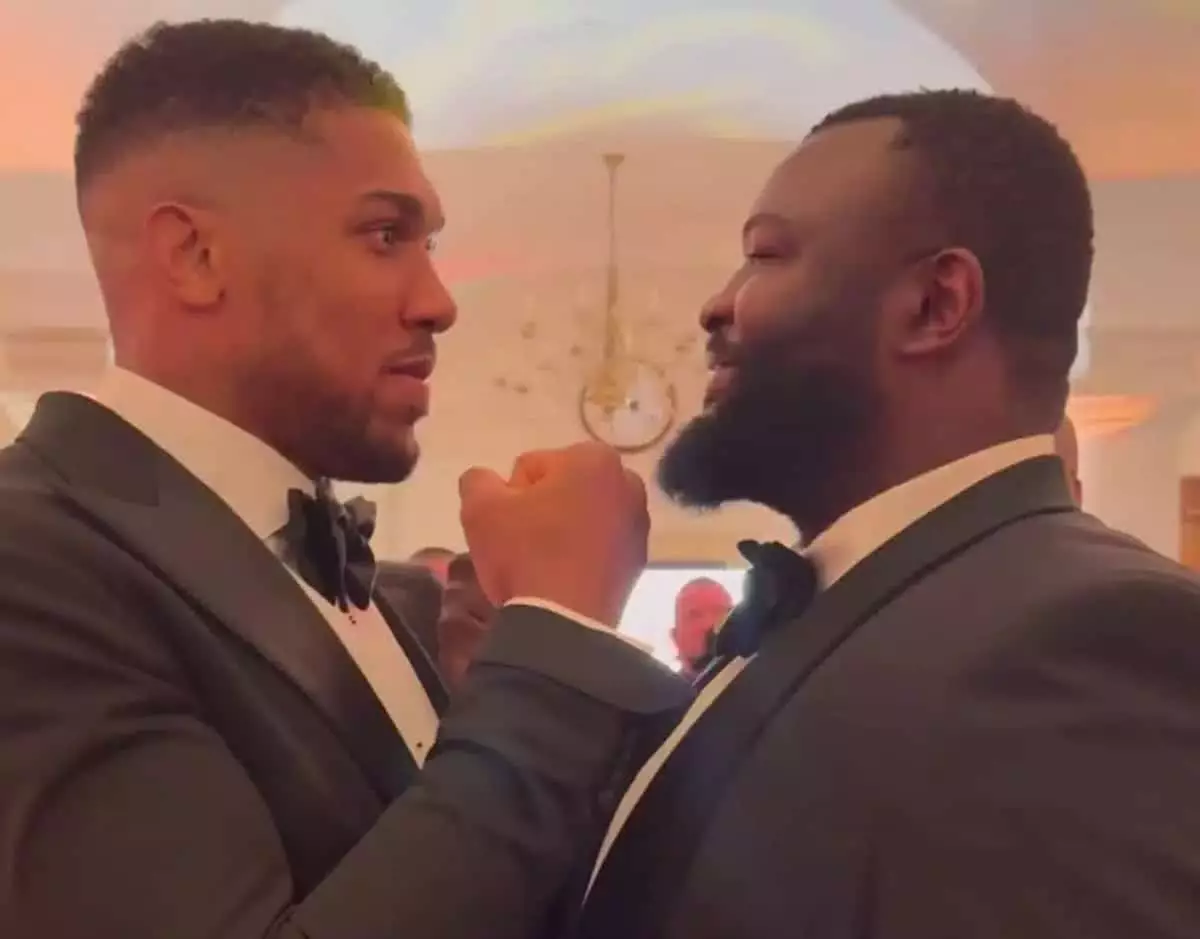In the world of boxing, few things are as electrifying as the prospect of a heavyweight clash, particularly when two fighters carry the weight of significant expectation on their shoulders. Recently, the focus has shifted towards a potential matchup between former unified champion Anthony Joshua and the rising contender Martin Bakole. While Eddie Hearn, Joshua’s promoter, has been somewhat dismissive of Bakole’s intentions, insisting that the latter is merely “clout-chasing,” the reality may be far more complex.
The Background of the Fighters Involved
Anthony Joshua, known for his power and charisma, has had a turbulent career trajectory in recent years. With a record of 28 wins and 4 losses, including two defeats to Oleksandr Usyk, many are beginning to question his ability to return to the pinnacle of the sport. Conversely, Martin Bakole, boasting a record of 21 wins and 1 loss, with an impressive 16 of those victories coming by way of knockout, is in the prime of his career. His latest notable performance—a knockout win against Jared Anderson—has put him firmly on the map, making him a serious contender in the heavyweight division.
What is particularly noteworthy is Bakole’s eagerness to face Joshua, a sentiment he has expressed publicly. His call-out is often interpreted as a strategic move to elevate his own profile in the boxing world. Yet, one must consider the tactical implications of such a challenge. For Bakole, a fight against Joshua presents not only a significant financial incentive but also the potential to cement his status as a top-tier heavyweight.
Eddie Hearn has posited that Bakole’s pursuit of a fight with Joshua is primarily about leveraging the former champion’s name for personal gain. Hearn’s assertion that Bakole is “riding the coattails” of Joshua brings into question the sincerity of Bakole’s intentions. However, Hearn’s dismissal may oversimplify a more complicated relationship between the two fighters. While Bakole’s interest may certainly have elements of strategic branding, it could also represent a genuine desire to establish himself through a high-profile match.
This narrative of clout-chasing invites scrutiny regarding the motivations of fighters in the modern era. Many athletes, particularly in heavyweight boxing, will leverage the reputations of established stars to escalate their career trajectory. The stakes are high, given the lucrative nature of major bouts. Yet, it is also feasible to argue that Bakole, fresh off a significant win, sees in Joshua an opportunity not just for financial reward but to validate his talent against a former champion.
If a fight between Joshua and Bakole were to be scheduled, it would undoubtedly generate considerable intrigue among boxing fans. The idea of a marquee matchup in Africa, reminiscent of the legendary Ali-Foreman bout, paints a picture that transcends mere competition. It emphasizes the potential cultural significance and marketability of such an event, drawing on the rich history of boxing, particularly in relation to the African continent.
Eddie Hearn, while cautious, has not ruled out the possibility of this fight happening, though he has indicated that Joshua might prioritize safer options in the wake of recent setbacks. This uncertainty adds an additional layer of complexity to the discussions surrounding the matchup. If Joshua continues to struggle against top competition, the risk of facing a formidable challenger like Bakole may deter him, as Hearn suggests that Joshua may prefer to fight less dangerous opponents, referred to derogatorily as “tomato cans.” This angle raises essential questions about the risk-reward balance not just for Joshua, but for the boxing industry at large.
As we analyze the interplay between Anthony Joshua and Martin Bakole, it becomes apparent that we are witnessing a crucial moment in heavyweight boxing. With mounting pressures from promoters, expectations from fans, and the fighters’ intrinsic motivations, the landscape is ripe for transformative bouts that could redefine careers. Whether Bakole is merely a clever opportunist or a legitimate threat to Joshua is yet to be seen. Nonetheless, the dialogue surrounding their prospective matchup reveals more about the current state of the sport than just the fighters themselves. It underscores an ongoing evolution within boxing—a sport balancing commercial interests with the age-old quest for glory inside the ring.

